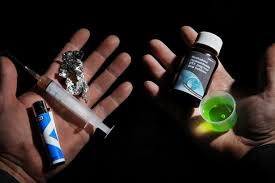
Methadone Treatment May Prolong Addiction
The conventional treatment for opioid dependence is to prescribe methadone.
Similar to morphine, methadone is a synthetic opioid sometimes referred to as a narcotic. It is useful at preventing opioid withdrawal, minimizing drug cravings, and is said to reduce the risk of HIV, Hepatitis C and other diseases associated with intravenous drug usage. Methadone is also cheap, and best of all legal.
Despite the advantages, methadone is highly addictive, and has many side effects such as dry mouth, fatigue, and weight gain.
Treatment involving methadone requires a weekly medical visit to renew the prescription, sometimes leading those who are addicted back to the very environment and people that they need to avoid to stay clean.
The Trauma & Mental Health Report recently spoke with Leslie (name changed for anonymity), a patient who has been receiving methadone maintenance treatment (MMT), who says, “Sometimes I wait all day to see the doctor. During that time, you can’t help but associate with other users, hear “drug talk”, or even see drugs being passed around. The methadone doctor doesn’t push counselling and is not there for support. I’m only going to get my prescription.”
Toward the end of treatment, methadone dose is slowly tapered to prevent withdrawal. But most users don’t wean off completely. Leslie says she didn’t have the motivation or tools to do so until she started seeing her drug addictions counselor:
“I’ve been trying to get off of methadone for 18 months now. It has helped with the withdrawal symptoms, and life is easier to manage since I’m not running the street 24/7 looking for my next fix. And I have more time to get my life on track. But, In order to ‘knock’ the addiction you need to figure out what your personal triggers are. My counselor has helped me with this. She also provides a safe place for me to go and discuss my problems and any issues I have with MMT.”
The greatest fear is relapse. Although part of the recovery process, relapse can have physical and emotional consequences. But it helps to identify personal triggers: cues that provoke drug-seeking behaviour, the most common of which are stress, environmental factors such as certain people or places, and re-exposure to drugs.
The most important missing link in MMT is drug counselling. Meeting with a counselor is not mandated and patients seldom see one. Those who seek counselling benefit from help determining personal triggers, and preparing for potential relapse. A counselor may help create a healthy living plan that focuses on improving mental health with nutrition, exercise, sleep, building healthy relationships, and spiritual development.
Better family relationships also help with recovery. Including family members in treatment increases commitment to counselling and also helps family members understand what the person is going though.
Opioid addiction is more than physical dependence. Initial detox is a start. Methadone helps with the physical aspects of withdrawal, and helps users lead a more normal life. But without the help of a drug counselor, MMT isn’t enough.
Without counselling, social support, a drug free environment, and the desire to change, we lead the patient only part way there. And part way isn’t enough.
-Jenna Ulrich, Contributing Writer





